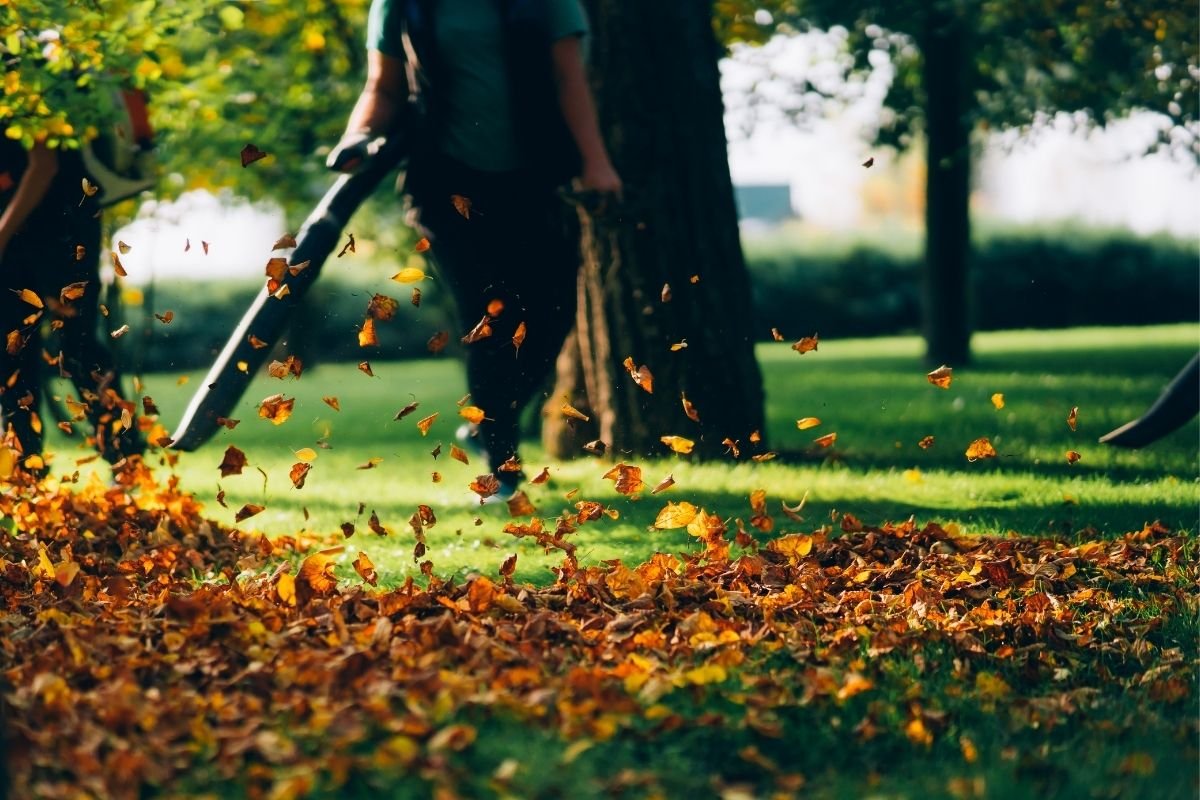6 Helpful Leaf Blower Tips for Kiwis
It’s easy to assume that using a leaf blower is as easy as turning it on and blowing some leaves, but there’s so much more to this versatile piece of lawn equipment than meets the eye.
If you’re ready to purchase a new leaf blower and give your autumnal leaves their marching orders, take a moment to read through our list of helpful tips first. You can then have all the information you need to make an informed purchasing decision.
#1 Do Your Homework On Leaf Blower Types
Just as you would research lawnmowers to see which is the most suitable for your lawn, it pays to do the same when purchasing a new leaf blower. You can buy battery-electric cordless leaf blowers, petrol leaf blowers, and mains-electric leaf blowers.
These all have their pros and cons based on the size of your yard and what you are using the leaf blower for. You may also like to compare different brands, read reviews, and consider noise and safety features.
It doesn’t pay to rush the research process as you may end up with a brand or type of leaf blower that doesn’t suit your needs.
#2 Consider What You’ll Use a Leaf Blower For
Sometimes, what you’ll use your leaf blower for can dictate what you buy and how you use your new leaf blower. While leaf blowing is, of course, what many people buy them for, that’s not all they’re capable of.
You can also use them to dry wet areas and even move debris and grass clippings. Many shop owners invest in them to move general dust, dirt, and debris away from their storefronts without having to resort to an ineffective and time-intensive broom.
#3 Purchase Safety Gear
Next to a lawnmower that has a blade moving around at 3,000 revs per minute, a leaf blower can seem like a harmless power tool. However, it’s not as harmless as you might think. Blower operators can hear up to 115 dB when operating a leaf blower, which means hearing protection can be crucial to prevent hearing loss.
Earplugs or earmuffs are a worthwhile purchase, along with goggles for eye protection and heavy-duty work gloves. When you visit your local hardware store to buy a new leaf blower, they will be able to point you in the direction of the most appropriate safety equipment.
#4 Use With Dry Debris
Most people will know that dry debris moves better with air than wet debris, but there’s no harm in giving you a reminder. Even if you have a lot of leaves smothering your lawn to move, you’ll need to wait until any rain has passed and the leaves have had a chance to dry before putting your leaf blower to work.
This isn’t so much a safety tip as it is a labour-savings one. If you decide to blow wet debris, your leaves will likely remain in place and you’ll waste your time.
#5 Master Your Leaf-Blowing Technique
If you’ve never used a leaf blower before, then there’s no guarantee that you’ll be a natural right away – and that’s okay! Master your technique, and you’ll show those leaves who’s boss in no time.
Rather than approaching your pile of leaves and blasting them with air, stand back a little bit and push air towards the leaves, not on top of them. This allows you to move the leaves where you want them to go.
It may also pay to have a fair idea of where you’ll want your pile to be before you get leaf blowing underway. For example, if you’ll be putting leaves in your compost bin, blow them in that general direction, or to a green waste bin if you have one.
#6 Don’t Annoy Your Neighbours
Many people have found themselves rudely awoken in the early hours of the morning, cursing whoever hasn’t yet banned leaf blowers. You don’t want to be an insensitive neighbour who starts up power equipment bright and early on the weekend.
You may not realise it, but we’re not allowed to make excessive noise under our Resource Management Act. This could be anything from leaf blowing to chainsaw use or listening to your music too loudly over the weekend.
Wait until a reasonable hour of the morning, such as after 9am, and consider powering down your leaf blower before 10pm. After that time, your neighbours may decide to call your local council’s noise control line and make a complaint.
Let Us Leaf Blow
Leaf blowing can be a satisfying household chore, but not everyone wants to go through the arduous process of buying one, learning how to use it, and making sure they don’t annoy their neighbours in the process.
If you have already hired the experts to mow your lawns, why not ask your lawn mowing contractor if they also provide a leaf blowing service? You may be able to free up even more of your time.

